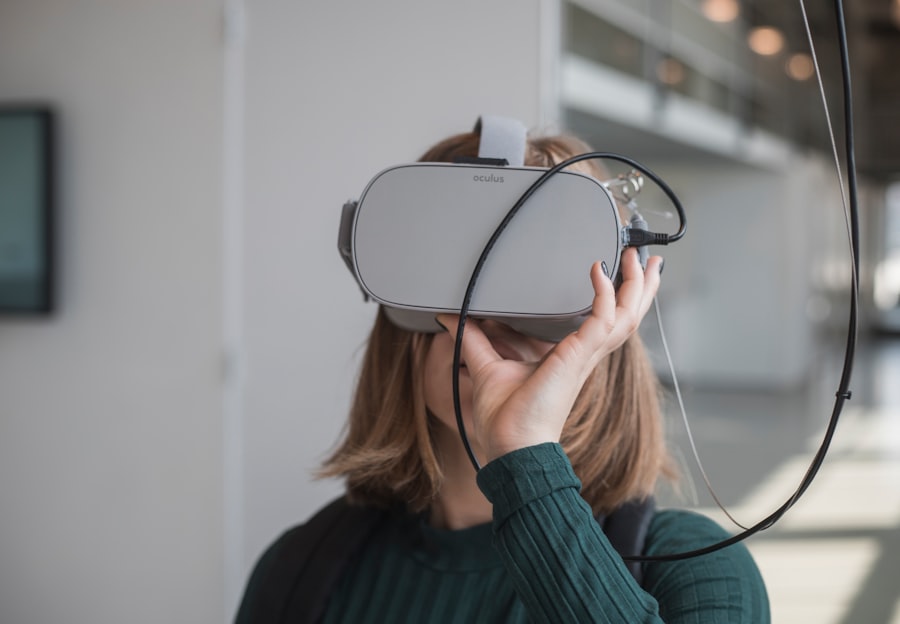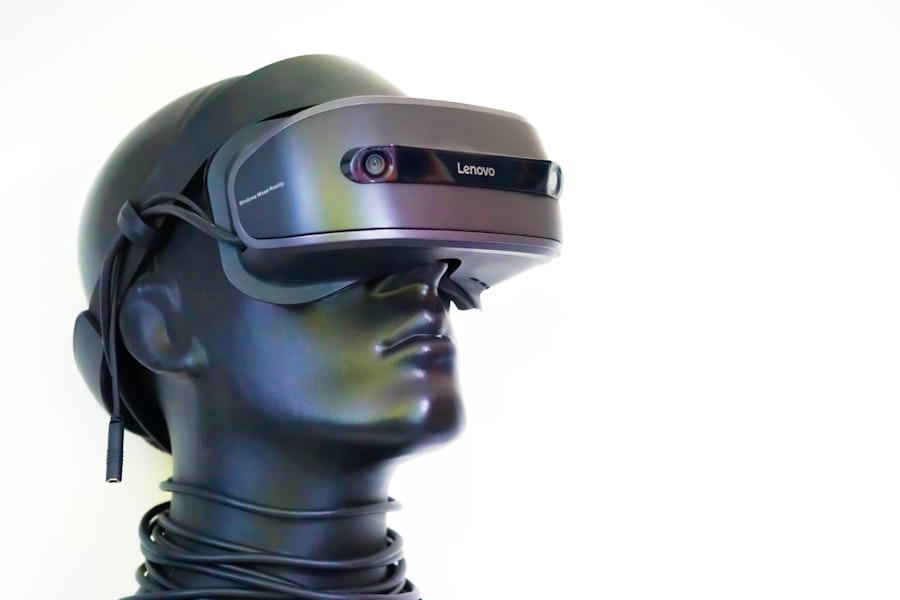The concept of the Metaverse has emerged as a transformative force in the digital landscape, capturing the imagination of technologists, entrepreneurs, and consumers alike. It represents a convergence of virtual reality (VR), augmented reality (AR), and the internet, creating an immersive, interactive environment where users can engage with one another and digital content in real-time. The term itself has roots in science fiction, notably popularized by Neal Stephenson’s 1992 novel “Snow Crash,” where it depicted a virtual reality space populated by avatars.
Today, the Metaverse is not merely a fictional construct but a burgeoning reality that promises to redefine how we interact with technology and each other. As we delve deeper into the Metaverse, it becomes evident that it is not just a single platform or application but rather an expansive ecosystem comprising various interconnected virtual spaces. Users can traverse these environments using avatars, participate in social interactions, attend events, and even conduct business.
The allure of the Metaverse lies in its potential to create a sense of presence and community that transcends geographical boundaries. With advancements in technology and increasing investment from major corporations, the Metaverse is poised to become an integral part of our daily lives, influencing everything from entertainment to education.
Key Takeaways
- The Metaverse is a collective virtual shared space, created by the convergence of virtually enhanced physical reality and physically persistent virtual reality.
- Virtual reality has evolved from basic 3D graphics to immersive, interactive experiences, paving the way for the development of the Metaverse.
- The Metaverse has the potential to revolutionize various industries, including gaming, entertainment, education, and commerce.
- Challenges and concerns surrounding the Metaverse include privacy and security issues, digital inequality, and the potential for addiction and escapism.
- The Metaverse has the potential to impact social interactions, economies, and the way we work and communicate, driving the need for technological innovation and ethical considerations.
The Evolution of Virtual Reality
The Early Experimentation Phase
Early experiments with virtual reality can be traced back to the 1960s, with devices like the Sensorama, which aimed to provide multisensory experiences. However, it wasn’t until the 1990s that VR began to capture mainstream attention, largely due to the development of more sophisticated hardware and software.
The Resurgence of Interest
Companies like Sega and Nintendo introduced VR gaming systems, albeit with limited success due to technological constraints and high costs. The resurgence of interest in VR in the 2010s can be attributed to several factors, including the advent of more powerful computing hardware, improved graphics capabilities, and the proliferation of smartphones.
VR Goes Mainstream and Beyond Gaming
Oculus Rift, launched in 2016, marked a pivotal moment in VR history by providing an accessible and immersive experience for consumers. This was followed by other notable entries such as HTC Vive and PlayStation VR, which further popularized the technology. As VR evolved, it began to find applications beyond gaming, entering fields such as healthcare for surgical training simulations and real estate for virtual property tours.
The Potential of the Metaverse

The potential of the Metaverse is vast and multifaceted, offering opportunities for innovation across various sectors. One of its most compelling aspects is the ability to create shared experiences that can enhance social interaction. In a world increasingly defined by digital communication, the Metaverse provides a platform where individuals can gather in virtual spaces, attend concerts, participate in conferences, or simply socialize with friends.
This immersive environment fosters a sense of belonging and community that traditional social media platforms often lack. Moreover, the Metaverse holds promise for economic transformation. Virtual economies are already emerging within these digital realms, where users can buy, sell, and trade virtual goods and services using cryptocurrencies or other digital currencies.
This economic model has been exemplified by platforms like Decentraland and Roblox, where users create and monetize their content. The potential for entrepreneurship is immense; creators can build virtual storefronts or offer services within these spaces, leading to new revenue streams and business models that were previously unimaginable.
Challenges and Concerns
| Challenges and Concerns | Metrics |
|---|---|
| Employee Turnover | 10% increase in the past year |
| Customer Complaints | 20% rise in the last quarter |
| Supply Chain Disruptions | 30% decrease in on-time deliveries |
Despite its exciting prospects, the Metaverse is not without challenges and concerns that must be addressed as it continues to develop. One significant issue is privacy and data security. As users engage in various activities within the Metaverse, they generate vast amounts of personal data that could be vulnerable to breaches or misuse.
Companies operating within this space must prioritize robust security measures to protect user information and maintain trust. Another pressing concern is the potential for digital addiction and its psychological impacts. The immersive nature of the Metaverse can lead individuals to spend excessive amounts of time in virtual environments, potentially detracting from real-world relationships and responsibilities.
This phenomenon raises questions about mental health and well-being in an increasingly digital society. As such, it is crucial for developers and policymakers to consider strategies that promote healthy engagement with these technologies while mitigating risks associated with overuse.
Industries and Applications
The Metaverse is poised to revolutionize numerous industries by providing innovative solutions and enhancing existing processes. In education, for instance, virtual classrooms can offer immersive learning experiences that engage students in ways traditional methods cannot. Imagine students exploring ancient civilizations through interactive simulations or conducting science experiments in a virtual lab setting.
Such applications not only make learning more engaging but also provide access to resources that may be limited in physical classrooms. In the realm of healthcare, the Metaverse can facilitate telemedicine consultations and training simulations for medical professionals. Surgeons can practice complex procedures in a risk-free environment before performing them on actual patients.
Additionally, mental health professionals can utilize virtual environments for therapy sessions, allowing patients to confront fears or anxieties in controlled settings. These applications highlight how the Metaverse can enhance efficiency and effectiveness across various sectors.
Social and Economic Impacts

Social Connections in the Metaverse
The Metaverse offers a unique opportunity for people to connect with each other in new and innovative ways, breaking down barriers and fostering global understanding. However, it also raises questions about inclusivity; ensuring that all individuals have access to the necessary technology and skills to participate in the Metaverse is crucial for its success.
Economic Implications and Job Markets
Economically, the rise of the Metaverse could lead to significant shifts in job markets and employment opportunities. As businesses establish their presence within these virtual spaces, new roles will emerge that require expertise in areas such as virtual design, community management, and digital marketing.
Adapting Traditional Industries
Furthermore, traditional industries may need to adapt their strategies to remain relevant in an increasingly digital economy. For instance, retail businesses may explore virtual storefronts or augmented reality experiences to enhance customer engagement. This shift towards digitalization could lead to new and innovative business models, changing the way companies operate and interact with their customers.
A Future of Endless Possibilities
As the Metaverse continues to evolve, it is likely to have a profound impact on various aspects of our lives, from social interactions to economic opportunities. With its potential to democratize access to information, education, and employment, the Metaverse could be a powerful tool for creating a more equitable and connected world.
The Role of Technology and Innovation
Technology plays a pivotal role in shaping the Metaverse’s development and functionality. Advances in hardware such as VR headsets, AR glasses, and haptic feedback devices are essential for creating immersive experiences that feel authentic to users. Companies like Meta (formerly Facebook) are investing heavily in research and development to enhance these technologies further, aiming for seamless integration between physical and digital worlds.
Moreover, software innovations are equally important in building the infrastructure of the Metaverse.
Additionally, artificial intelligence (AI) can enhance user experiences by personalizing content recommendations or enabling realistic interactions with virtual characters.
As these technologies continue to evolve, they will play a crucial role in determining how users experience and interact within the Metaverse.
As we look ahead to the future of the Metaverse, it is essential to consider how we navigate this uncharted territory responsibly. Stakeholders—including developers, policymakers, educators, and users—must collaborate to establish guidelines that promote ethical practices within these digital spaces. This includes addressing issues related to content moderation, user safety, and equitable access to technology.
Furthermore, fostering a culture of innovation while prioritizing user well-being will be critical as the Metaverse matures. Encouraging diverse voices in its development will ensure that it reflects a wide range of perspectives and needs. By embracing inclusivity and ethical considerations from the outset, we can work towards a Metaverse that enhances human connection rather than detracting from it.
In conclusion, while the Metaverse presents exciting opportunities for social interaction and economic growth, it also poses significant challenges that require careful consideration. By addressing these concerns proactively and fostering collaboration among stakeholders, we can shape a future where the Metaverse serves as a positive force for society at large.
If you are interested in learning more about the metaverse and its potential impact on our digital reality, I recommend checking out the article Exploring the Metaverse: A New Frontier in Digital Reality. This article delves into the concept of the metaverse and how it is shaping the way we interact with technology and virtual environments. It provides valuable insights into the possibilities and challenges of this emerging digital frontier.
FAQs
What is the metaverse term?
The metaverse term refers to a collective virtual shared space, created by the convergence of virtually enhanced physical reality and physically persistent virtual reality. It is a concept that has gained popularity in recent years due to advancements in technology and the increasing integration of virtual experiences into everyday life.
How is the metaverse different from virtual reality?
While virtual reality (VR) refers to a fully immersive digital experience that replaces the user’s real-world environment, the metaverse encompasses a broader concept of a collective virtual space that is persistent and shared by multiple users. The metaverse can include various virtual experiences, such as VR, augmented reality (AR), and other forms of digital interaction.
What are some examples of the metaverse in popular culture?
Popular examples of the metaverse in popular culture include the concept of the OASIS in the novel and film “Ready Player One,” as well as virtual worlds like Second Life and Decentraland. These examples showcase the idea of a shared virtual space where users can interact, socialize, and engage in various activities.
How is the metaverse being used in real-world applications?
The metaverse is being used in real-world applications for various purposes, including socializing, gaming, virtual events, education, and commerce. Companies are exploring the potential of the metaverse for creating immersive experiences, virtual workplaces, and new forms of entertainment and communication.
Some potential challenges and concerns related to the metaverse include issues of privacy and security, the potential for addiction and over-reliance on virtual experiences, as well as questions about the regulation and governance of virtual spaces. Additionally, there are concerns about the potential for the metaverse to exacerbate existing social inequalities and create new forms of digital divide.

Leave a Reply